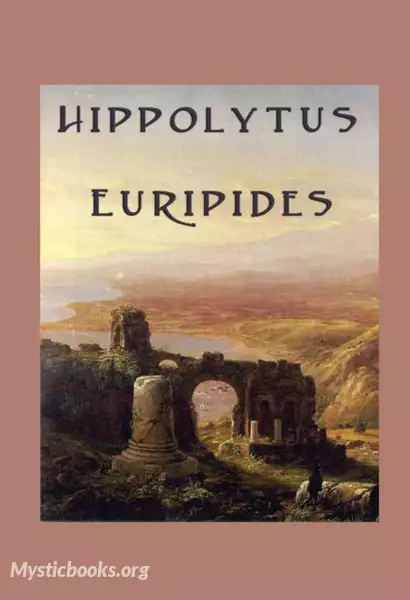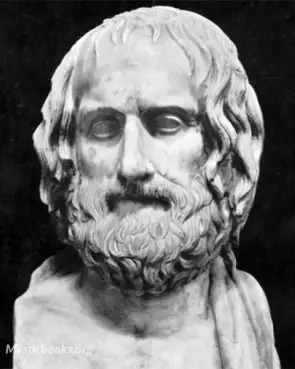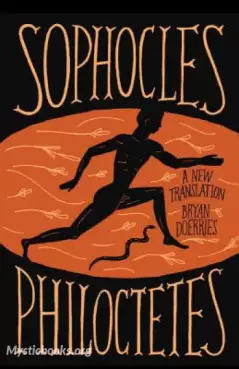
Hippolytus
by Euripides
'Hippolytus ' Summary
The play is set in Troezen, a coastal town in the north-eastern Peloponnese. Theseus, the king of Athens, is serving a year's voluntary exile after having murdered a local king and his sons. His illegitimate son is Hippolytus, whose birth is the result of Theseus's rape of the Amazon Hippolyta. Hippolytus has been trained since childhood by the king of Troezen, Pittheus.
At the opening of the play Aphrodite, Goddess of love, explains that Hippolytus has sworn chastity and refuses to revere her. Instead, he honours the Goddess of the hunt, Artemis. This has led her to initiate a plan of vengeance on Hippolytus. When Hippolytus went to Athens two years previously Aphrodite inspired Phaedra, Hippolytus' stepmother, to fall in love with him.
Hippolytus appears with his followers and shows reverence to a statue of Artemis, a chaste goddess. A servant warns him about slighting Aphrodite, but Hippolytus refuses to listen.
The chorus, consisting of young married women of Troezen, enters and describes how Theseus's wife, Phaedra has not eaten or slept in three days. Phaedra, sickly, appears with her nurse. After an agonizing discussion, Phaedra finally confesses why she is ill: she loves Hippolytus. The nurse and the chorus are shocked. Phaedra explains that she must starve herself and die with her honour intact and to save Theseus from shame. However, the nurse quickly retracts her initial response and tells Phaedra that she has a magical charm to cure her. However, in an aside she reveals different plans.
The nurse, after making Hippolytus swear not to tell anyone, informs Hippolytus of Phaedra's desire and suggests that Hippolytus consider yielding to her. He reacts with a furious tirade and threatens to tell his father, Theseus, everything as soon as he arrives. Phaedra realizes disaster has fallen. After making the chorus swear secrecy, she goes inside and hangs herself.
Theseus returns and discovers his wife's dead body. Because the chorus is sworn to secrecy, they cannot tell Theseus why she killed herself. Theseus discovers a letter on Phaedra's body, which falsely asserts that she was raped by Hippolytus. Enraged, Theseus curses his son either to death or at least exile. To execute the curse, Theseus calls upon his father, the god Poseidon, who has promised to grant his son three wishes. Hippolytus enters and protests his innocence but cannot tell the truth because of the binding oath that he swore. Taking Phaedra's letter as proof, Hippolytus proudly defends his innocence, saying that he has never looked at any women with sexual desire. Theseus does not believe his son and still exiles him. As Hippolytus is departing he swears that if he lying then Zeus should strike him down on the spot.
The chorus sings a lament for Hippolytus.
A messenger enters and describes a gruesome scene to Theseus; as Hippolytus got in his chariot to leave the kingdom, a bull roared out of the sea, frightening his horses, which dashed his chariot among the rocks, dragging Hippolytus behind. Hippolytus seems to be dying. The messenger protests Hippolytus' innocence, but Theseus refuses to believe him.
Book Details
Authors

Euripides
Greece
Euripides was a tragedian of classical Athens. Along with Aeschylus and Sophocles, he is one of the three ancient Greek tragedians for whom any plays have survived in full. Some ancient scholars attri...
Books by EuripidesDownload eBooks
Listen/Download Audiobook
- Select Speed
Related books

Philoctetes by Sophocles
Philoctetes or Philocthetes, according to Greek mythology, was the son of Poeas, king of Meliboea in Thessaly, and Demonassa or Methone. He was a Gree...

Macdermots of Ballycloran by Anthony Trollope
Set in 19th-century Ireland, *The Macdermots of Ballycloran* follows the decline of a once-proud landowning family, the Macdermots. Larry Macdermot st...

Good Soldier by Ford Madox Ford
The Good Soldier (1915) "... is set just before World War I and chronicles the tragedies of the lives of two seemingly perfect couples. The novel is t...

Über die Iphigenie auf Tauris by Friedrich Schiller
Friedrich Schiller's "Iphigenie auf Tauris" is a classic German play that draws inspiration from Greek mythology, particularly the story of Iphigenia,...

κακός δρόμος, κι άλλα καινούρια διηγήματα (1908-1911) by Gregorios Xenopoulos
This collection of short stories by Gregorios Xenopoulos, published between 1908 and 1911, showcases his distinctive style and themes. The title story...

Jephtha by Thomas Morell
Jephtha is a tragic oratorio in three acts, written by Thomas Morell and set to music by George Frideric Handel. It was first performed at the Covent...

Don Carlos by Friedrich Schiller
Don Carlos is a historical tragedy by Friedrich Schiller, set in 16th-century Spain. The play explores the complex web of power, love, and duty that...

Clarissa Harlowe, or the History of a Young Lady - Volume 6 by Samuel Richardson
Clarissa Harlowe is a sprawling epistolary novel that tells the story of a young woman's struggle to maintain her virtue in a world that seems determi...

Anna Karenina, Book 6 by Leo Tolstoy
Anna Karenina delves into the complexities of love, societal expectations, and the consequences of defying societal norms. It portrays the story of An...

Clarissa Harlowe, or the History of a Young Lady - Volume 3 by Samuel Richardson
Clarissa Harlowe is an epistolary novel by Samuel Richardson, first published in 1748. It tells the story of Clarissa, a young woman who is forced to...
Reviews for Hippolytus
No reviews posted or approved, yet...